Following the average Olympics in Montreal, the Olympics were now held in Moscow in 1980. For the first time, the quadrennial event was held in a Slavic, communist nation. Until 2008, only USSR had this distinction.
Before the Moscow Olympics, no Summer Games had the ignominy of 'Boycott' associated with it. However, with Moscow, the ignominy was added as well. Owing to the Soviet Union's invasion of Afghanistan, the USA boycotted these Games. Most Islamic nations backed it.
However, the rest either did not care, or had no interest in the cold war between USA and USSR. Some registered a unique protest, by participating under the Olympic flag, like Great Britain and Portugal did. Here are some interesting facts about the Moscow Olympics of 1980 -
Allan Wells - The first Briton since Harold Abrahams to win the gold medal in the 100 meters -
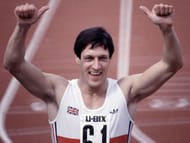
Since the USA had boycotted the Moscow Olympics, the Soviet Union had a golden chance to make it big in sprinting events. However, one man surprised many. He was Great Britain's Allan Wells. He won a gold medal in the 100 meters and a silver medal in the 200 meters.
By doing so, Allan Wells became the first British runner since Harold Abrahams to win Olympic gold in 100 meters. Harold last won gold for Britain at the Paris Olympics in 1924.
Rise of Sebastian Coe -
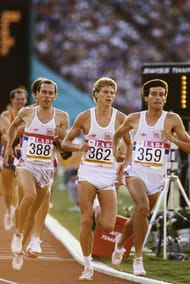
The Moscow Olympics also saw the rise of middle distance champion Sebastian Coe. He competed in the 800 meters and the 1500 meters event. For Coe, 800 meters was his pet event, 1500 meters being his alternative. However, in a surprise for many, including Coe himself, he was defeated in 800 meters by Steve Ovett.
According to Steve, he would not only win the race, but also break the world record by four seconds. However, to his shock, Sebastian had a sweet revenge, as he defeated Steve, pushing him to the bronze medal position. Sebastian went on to repeat his performance at the Los Angeles Olympics in 1984 as well.
Therefore it is said that it is not over until it is over.
Teofilo Stevenson - The Cuban boxing champion who scored a golden hat-trick -
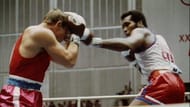
The Moscow edition also saw the rise of the greatest amateur boxer ever, Teofilo Stevenson of Cuba. He made his debut at the Munich Olympics in 1972. He won the heavyweight category.
He repeated the same feat at the Montreal Olympics in 1976. However, he completed his golden hat-trick in Moscow in 1980.
Had Cuba not boycotted the Los Angeles Games of 1984 and the Seoul Games of 1988, Teofilo Stevenson could have possibly been the first amateur boxer to win the heavyweight Olympic title for five consecutive times.
Introduction of women's hockey -
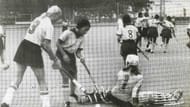
The Moscow Olympics also saw the introduction of women's hockey. Due to the boycott stigma, many countries declined to be a part of the same. As such, apart from the hosts, India, Zimbabwe, Austria, Poland and Czechoslovakia made up the rest of the squad.
It was a round robin format, with no knockout. Zimbabwe won gold, while Czechoslovakia won silver. The Soviet Union eventually defeated India for the bronze medal by 2-1.
Moscow Olympics - The last time India kissed gold in hockey -
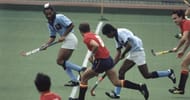
4-3. This was the score of India vs. Spain. This was also the last time India won an Olympic medal of any kind in field hockey. Courtesy of the boycott by USA and many other teams, only 6 teams participated in this edition.
India bamboozled Cuba and Tanzania by huge margins before they drew with Spain and Poland. They further defeated the hosts, the Soviet Union, to march into the finals.
In the finals, Juan Amat of Spain took the match to a nail biting finish. However, a field goal from Mohammad Shahid in the 58th minute sealed the match for India. Juan scored another goal for Spain, but he could not equalize the match for Spain.
For the last time in the history of Olympics, India had won the gold medal. Even though it's been more than 4 decades, their record in field hockey is still unbroken. With 8 gold medals, India is still the most successful team till date.
